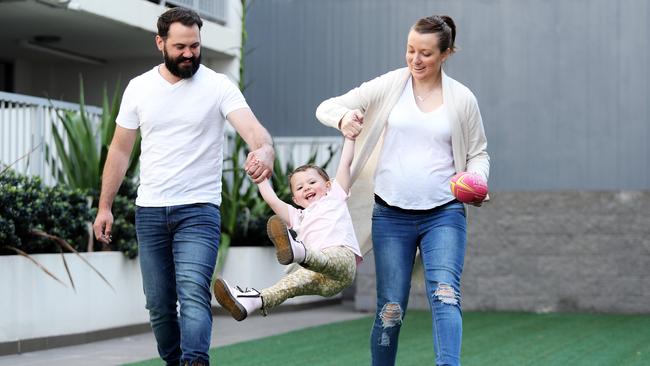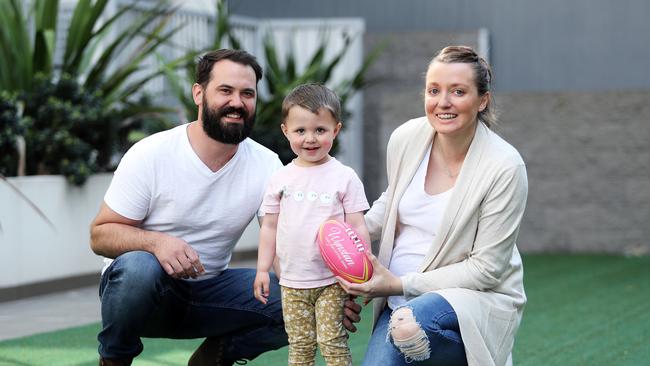Children’s Cancer Institute designs specific patient treatment for kids
After being told their daughter “only” had bronchiolitis, Eliza and Darren Kelly were horrified to discover Harper was battling something far worse.
National
Don't miss out on the headlines from National. Followed categories will be added to My News.
After a month of looking pale and lethargic and suffering from persistent coughing, the Kellys were told their almost-two-year-old had acute lymphoblastic leukaemia (ALL).
Now, more than one year after the worst day of their lives, the Kellys have has reason to celebrate — not only is Harper in remission, she will be a big sister.
“Having another baby was something we were thinking about trying for around the time Harper was two,” Mrs Kelly said.
“But, with her being diagnosed a few weeks before turning two, we quickly put that plan aside.
“I think after all that we have been through, having a little baby, a little sibling for Harper, in our lives this year is going to be really wonderful for us all.”

While Mr and Mrs Kelly are beyond relieved to have the horror of the past year behind them, they are aware leukaemia is part of their future.
About 150 Australian children are diagnosed with the aggressive form of blood cancer every year.
Because of research undertaken by the Children’s Cancer Institute, patients get a tailored treatment program to be most effective while minimising side-effects. However, there is more work to be done to eradicate side-effects altogether.
Before the 1960s ALL was considered incurable. Today, cure rates are 90 per cent.
But researchers know children who survive ALL go on to have increased chances of heart disease, higher rates of neuroendocrine disorders such as diabetes and developing another type of cancer.
Professor Richard Lock from the Children’s Cancer Institute and his team are working to change this.

“Chemotherapy does a good job of targeting cancer cells but it also targets other cells that are dividing, which is proving to have issues into adulthood,” Prof Lock said.
“My program is trying develop drugs that target the diseased cells. The cure is not enough. In addition to curing ALL, we need to develop drugs that alleviate the effects into adulthood.”
The Kellys started the Harper Brave Facebook page to advocate for childhood cancer and create awareness with hopes one day no child or family will have to go through what they did.
September is Childhood Cancer Awareness Month. Support Children’s Cancer Institute’s lifesaving research at ccia.org.au
